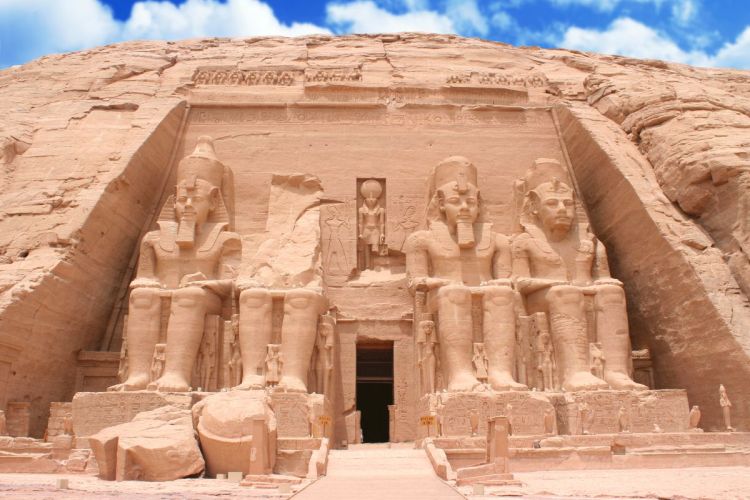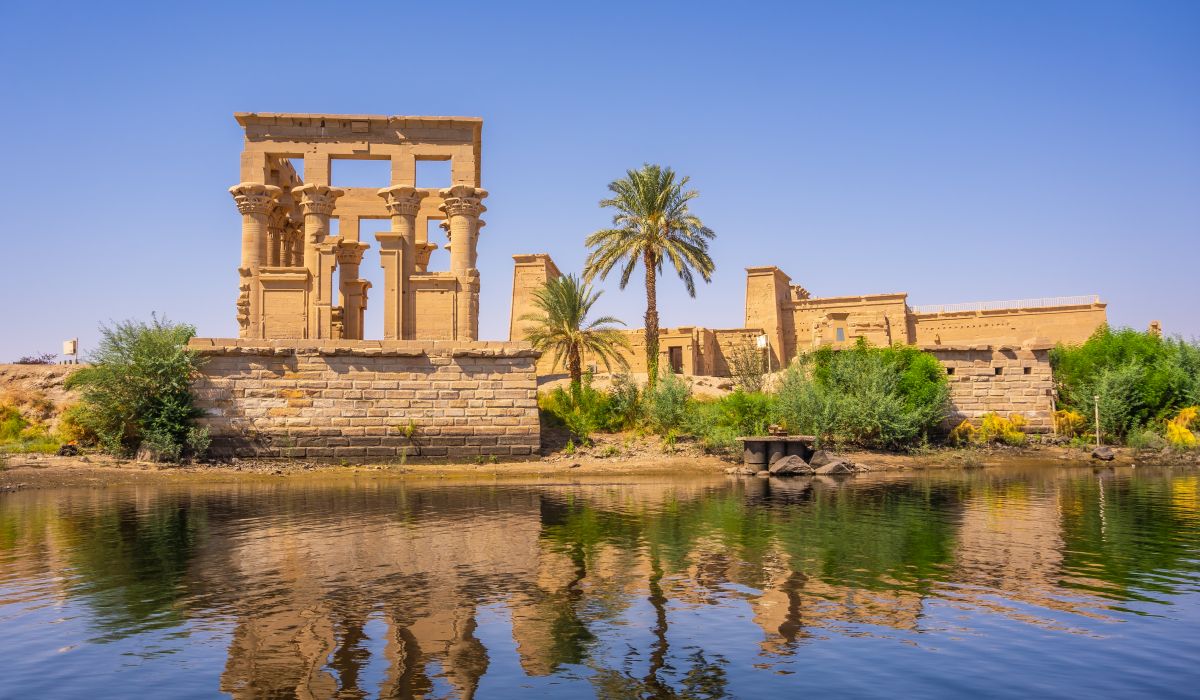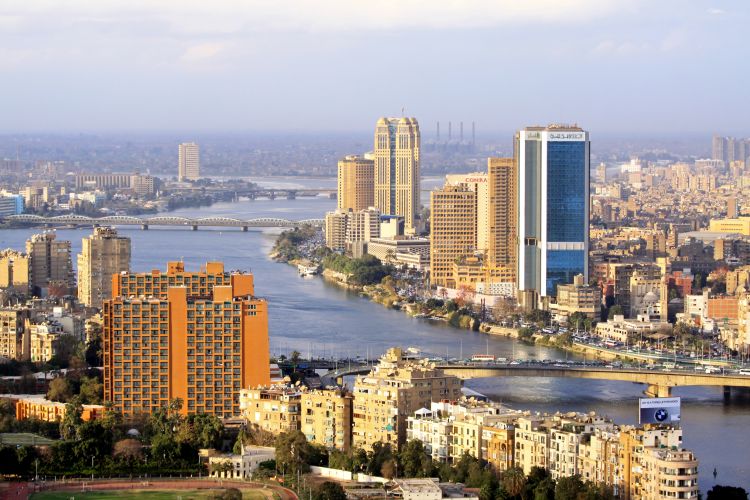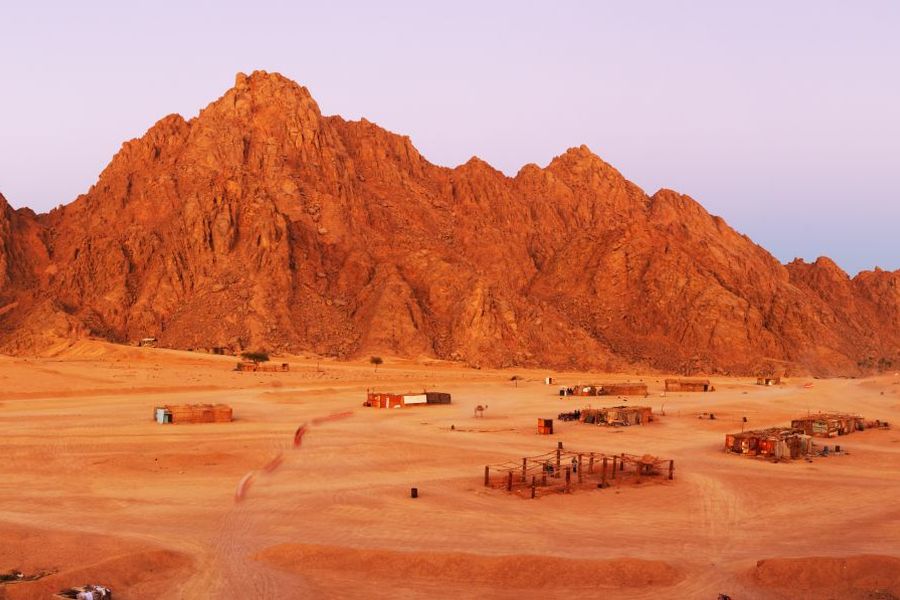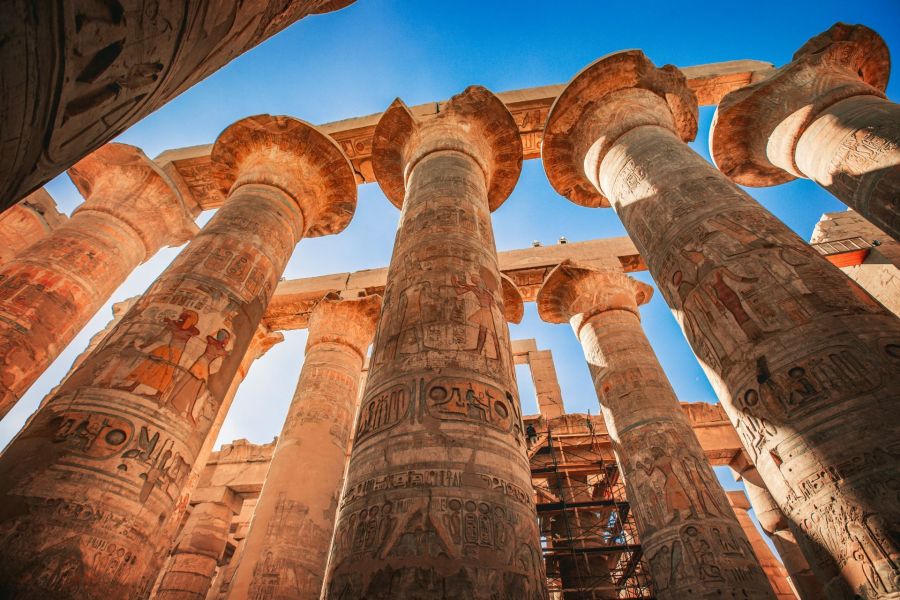The Jewel of Nubia Aswan
Located in the southern frontier of Ancient Egypt, Aswan was once known as Swenett, and later as Syene. Its origin is said to stem from an ancient Egyptian deity bearing the same moniker.

Explore Beautiful Places in Aswan
Abu Simbel
A miracle of construction and relocation.
Philae temples
A splendid homage to the stunning Isis.
Located in the southern region of Egypt, Aswan City boasts a rich and diverse history and culture. With a plethora of ancient landmarks, magnificent temples, a lively bazaar, and breathtaking scenery, the city has something to offer for people of all interests. Not only is Aswan known for its impressive treasures, but also for its welcoming and hospitable residents who take great pride in sharing their heritage with visitors.

The history of Aswan
Throughout the ages, Aswan has served as the gateway to Africa, a hub of trade and commerce due to its strategic location. As a result, this city has been fiercely contested by various empires and cultures, including the Greeks, Romans, and the Copts. In Ancient Egypt’s 18th dynasty, Aswan reigned as the country’s capital, with the remains of many pharaohs entombed within its borders. During the Greco-Roman era, Aswan was referred to as Syene, a renowned center for astronomy positioned on the Tropic of Cancer. The Ottoman period brought Turkish rule and a distinct influence on Aswan’s architecture. This city has also played a crucial role in the trade of precious commodities such as gold, ivory, and spices. In modern times, Aswan continues to thrive, serving as a vital hub for tourism, agriculture, and industry. Despite the ever-changing landscape, Aswan remains an integral part of Egypt’s rich heritage and culture.
Famous landmarks in Aswan
Aswan boasts some of the country’s most notable landmarks. For instance, the majestic Abu Simbel Temples, constructed in the 13th century BC by Pharaoh Ramesses II, remain a beloved tourist attraction. These two temples, intricately carved into the mountainside, pay homage to the gods Amun, Ra-Horakhty, and Ptah. While the temples were relocated in the 1960s due to the construction of the Aswan High Dam, they continue to attract visitors from all over the world.
Another renowned landmark in Aswan City is the Temple of Philae. This dazzling temple, dedicated to the goddess Isis, was built by the Ptolemaic dynasty. In order to accommodate the Aswan High Dam, the temple was moved to an island in the Nile River, where it stands today. The temple’s intricate architecture and rich history captivate all who visit.
The Unfinished Obelisk, another famous landmark in Aswan City, was initially commissioned by Queen Hatshepsut, but was never completed. Its construction was halted due to a large crack discovered in the granite. The Obelisk remains in the quarry where it was being carved, serving as a reminder of the monumental scale of the project.
Last but not least, the Aswan High Dam itself is a landmark of great significance in Aswan City. A colossal feat of engineering, the dam was completed in the 1970s and remains one of the largest dams in the world. Not only does it provide electricity to a significant portion of Egypt, but it also helps regulate the flooding of the Nile River. Visitors can take a tour of the dam and gain insight into its fascinating history and construction.
The people of Aswan
The inhabitants of Aswan emanate a diverse and vibrant cultural essence. A notable component of their identity is derived from their Nubian ancestry – a people with a deeply rooted legacy in the region. The Nubians possess a distinct language, music, and dance, all intricately intertwined with their rich culture. Besides the Nubians, Aswan is home to a spectrum of ethnicities including Egyptians, Arabs, and the Beja tribe. The people of Aswan are renowned for their hospitable nature and warm welcome towards travelers. They take great pride in their city’s bountiful history and are always eager to share their knowledge with others. The Christian Coptic community also holds a significant presence in Aswan, with a history dating back centuries. Their profound influence can be observed in the city’s architecture and customs. Overall, the people of Aswan are a fusion of diverse cultures and traditions, reflective of the city’s unique past and geographical location.
More Insights on Egyptian Destinations
Embark on a journey to Egypt’s captivating destinations with Way to Egypt. Explore the beauty and wonders of this ancient land through our curated travel experiences. Start planning your Egyptian adventure today!

